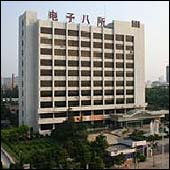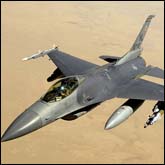 The Bureau of Industry and Security (“BIS”) recently released documents relating to the settlement of charges against a California man, York Yuan Chang, in connection with alleged unlicensed technology exports by Chang to the 24th Research Institute of the China Electronics Technology Corporation, which — in case you were wondering — is in China. The exports at issue related to the design of certain analog to digital converters controlled by ECCN 3E001. Pursuant to the settlement agreement, Chang agreed to pay a $300,000 fine and submit to a 12-year export denial order.
The Bureau of Industry and Security (“BIS”) recently released documents relating to the settlement of charges against a California man, York Yuan Chang, in connection with alleged unlicensed technology exports by Chang to the 24th Research Institute of the China Electronics Technology Corporation, which — in case you were wondering — is in China. The exports at issue related to the design of certain analog to digital converters controlled by ECCN 3E001. Pursuant to the settlement agreement, Chang agreed to pay a $300,000 fine and submit to a 12-year export denial order.
All but $50,000 of the fine was suspended on condition that that Chang committed no further export violations during a two-year probationary period. The twelve year denial order was also suspended upon several conditions, including timely payment of the $50,000 fine and compliance with the terms of his plea agreement in a related criminal prosecution. More significantly, because I haven’t seen this condition applied previously, the suspension of the denial order was also conditioned upon Chang’s attendance at, and completion of, an export compliance training course within twelve months. The settlement agreement also contained language prohibiting Chang from making any public statements denying the allegations in the proposed charging letter or the BIS order implementing the settlement agreement.
Only one count was charged. That single count resulted in a fine in excess of the normal $250,000 per count penalty because the transaction was valued at $1 million which permits the imposition of a fine equal to twice the value of the transaction.
A review of the docket (PACER subscription required) in the criminal case revealed a few other interesting things about this case. First, it appears that a Foreign Intelligence Surveillance Act (“FISA”) warrant was used to obtain evidence against Chang. That explains, no doubt, the extraordinary detail presented in the BIS charging documents relating to the telephone conversations between Chang and persons employed by the 24th Research Institute. These conversations apparently contained an admission by Chang that he was aware that the analog to digital conversion technology at issue was export controlled. Additionally, Chang’s plea agreement is sealed and no sentence has been imposed yet. This suggests, along with the FISA warrant, that a broader investigation is involved and that Chang’s cooperation in that investigation is an essential part of the plea deal.

 Posted by
Posted by  Category:
Category: 

 Two criminal informations (which you can find
Two criminal informations (which you can find  Ahem. Here is what
Ahem. Here is what  A committee of the New Jersey state senate and a committee of the state assembly
A committee of the New Jersey state senate and a committee of the state assembly  Sometimes, believe it or not, export compliance efforts might be a bit overzealous and lead to other problems. Several readers brought to my attention this
Sometimes, believe it or not, export compliance efforts might be a bit overzealous and lead to other problems. Several readers brought to my attention this 

